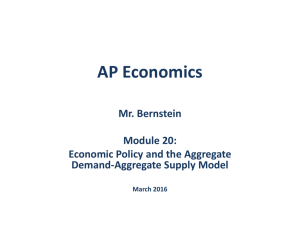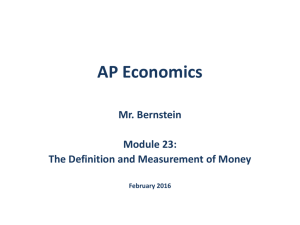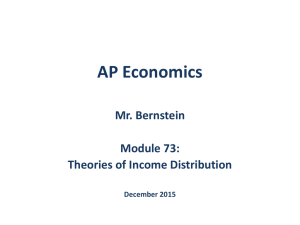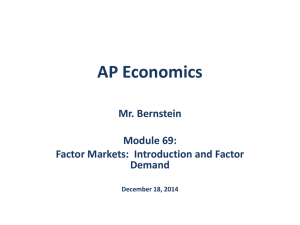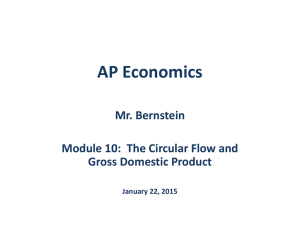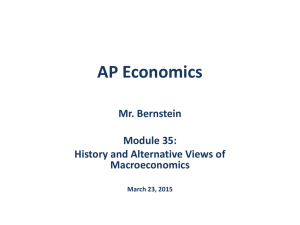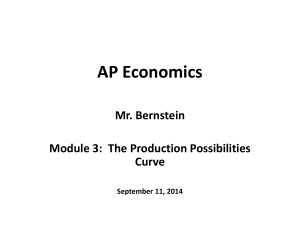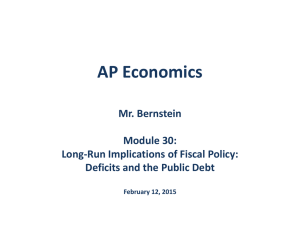Module 65 - Game Theory
advertisement
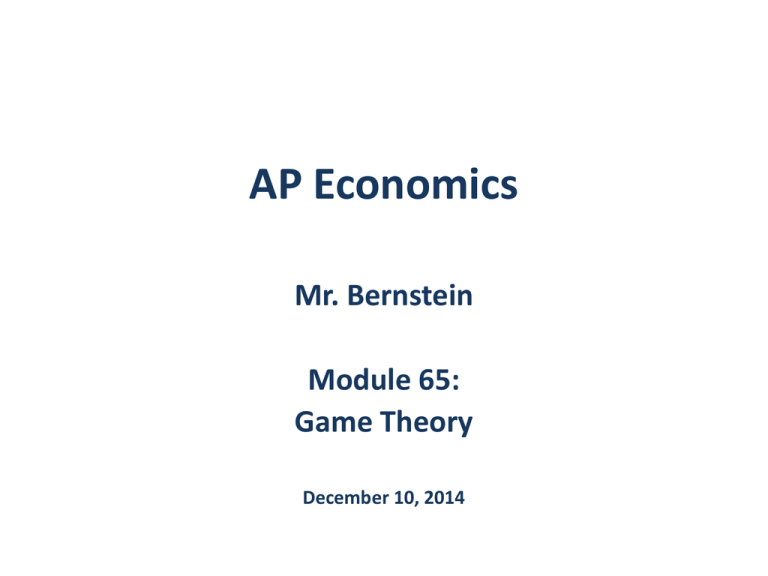
AP Economics Mr. Bernstein Module 65: Game Theory December 10, 2014 AP Economics Mr. Bernstein Game Theory • Study of how interdependent decision makers make choices • Used to study the decisions of oligopolists 2 AP Economics Mr. Bernstein Non-Cooperative Games • Each player competes to maximize individual payoffs and ignores the effects of his/her action on the payoffs received by the rival 3 AP Economics Mr. Bernstein Terms to Know • Payoff Matrix • Diagram showing payoffs to each player in a game depend on the actions of both • Dominant Strategy • Action that is a player’s best action regardless of what the other player does • Nash Equilibrium • Occurs when the game ends, and each player is happy with the outcome, given the choice made by the rival • Neither player can improve their position with another move 4 AP Economics Mr. Bernstein The Prisoner’s Dilemma • Criminals don’t know that police lack evidence • Each player has an incentive to choose an action that benefits his/herself at the other player’s expense • Both players are then worse off than if they had acted cooperatively 5 AP Economics Mr. Bernstein The Prisoner’s Dilemma, cont. • Confession is the dominant strategy when Johnny and Frankie cannot talk (collude) • Both players confess and the game reaches a Nash equilibrium – but an undesirable outcome! 6 AP Economics Mr. Bernstein Repeated Interaction and Tacit Collusion • Repeated Interaction leads to Strategic Behavior • Players take into account the effect of their action on future behavior of competitors • “Tit for tat” strategy • Firm begins by cooperating, then each day does whatever their competitor did yesterday • Tacit Collusion • Competitors collude, without formal agreement, to reduce output and increase prices 7
